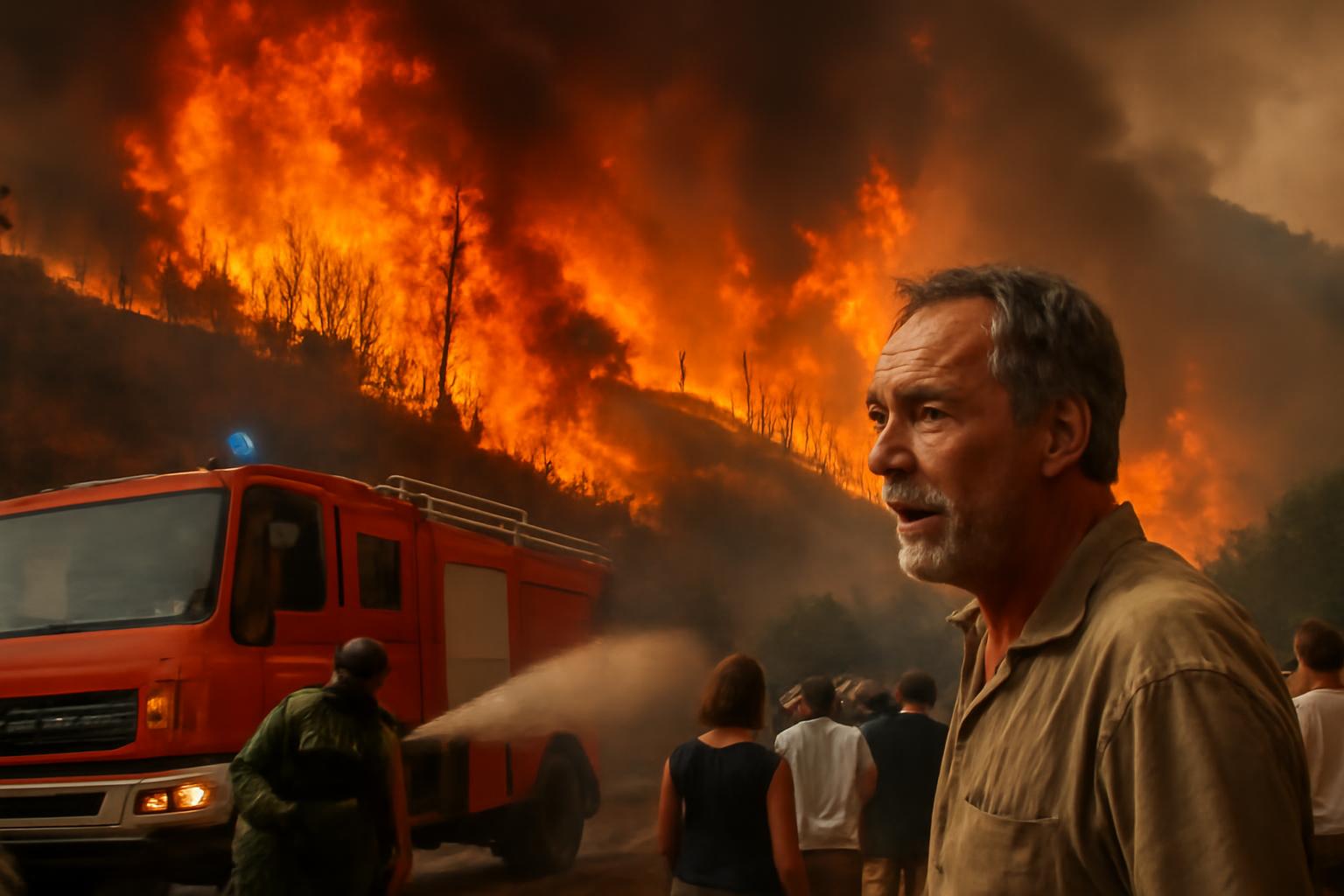A blistering heatwave has set the stage for wildfires that roared across Southern Europe, from Portugal and Spain to Greece, France and the Balkans. Relief may still be weeks away, authorities warn. Spain formalized its use of the EU firefighting mechanism and requested two Canadair air tankers as a precaution, with the option to seek more help, including additional firefighters, if needed. By mid-August, roughly 6,000 people from 26 towns had been evacuated in Spain, with two fatalities and seven burn victims hospitalized in the northwest, four of them in life-threatening condition, including a 37-year-old whose burns cover about 85 percent of the body. In Galicia, about 11,500 hectares have burned and a rail line between Galicia and Madrid was shut due to a blaze near the tracks. Spain entered its tenth day of heat, with temperatures reaching up to 45°C and forecasts suggesting the heat could endure. In Greece, air support began as crews fought fires around Patras, Chios and Zakynthos; Zakynthos was under control, Chios remained a major challenge, and Patras-area firefighting had slightly eased. In Portugal, more than 1,500 personnel battled the six largest fires near Coimbra, with ongoing efforts coast to coast. Southern France faced a massive wildfire between Narbonne and Carcassonne, with investigators considering arson; the blaze has caused two deaths and two serious injuries and is described as the largest in the French Mediterranean region in at least 50 years. In the Balkans, Montenegro and Albania each reported a fatality.
One cannot help but observe, with the indulgent sigh of a man who has never personally worried about a draft under the door of his marble hall, that nature has decided to remind the world—yet again—that heat chooses no social rank, no polite club membership, no sirocco-sponsored seating chart. The spectacle is at once tragic and almost… orderly, as if even chaos wears a tailored suit. The EU whirs into action with a brigade of air tankers and firefighting forces—as though a flotilla of luxury could be conjured to sail into a blaze and snuff it out with the same effortless ease one uses to summon a private driver. And yet the numbers pile up: thousands evacuated, dozens burned, several lives extinguished in moments, a rail line severed, villages left to forage for mercy in the ash of a sun that seems to have grown bored with mere spectacle and decided to burn the script.
Let us not pretend this is mere bad luck or an act of nature’s caprice, for the conditions are not incidental decorations in some dramatic tableau but the very furniture of our era: heat-generating policies, energy choices, and a political class that speaks grandly about resilience while treating resilience as a luxury amenity for the privileged. The fires, mercifully or mercilessly, expose the truth that those who rule and those who merely endure share this planet’s prognosis—and the gulf between them widens with every stubborn refusal to address the root sources of such scorch. When arson is considered in the south of France yet only after the smoke clears, when Europe mobilizes its firefighting corps with the urgency of a high-stakes gala, one must admit that courage and resources are real, but so is the uncomfortable reality: the heat does not care about titles, and the clock ticks relentlessly toward a future where comfort is the exception, not the rule.
If one were pressed to offer a prescription, it would be simple in theory, drearily difficult in execution: prepare not merely to respond to fires but to prevent them, not merely to extinguish flames but to curb the conditions that fertilize them, not to console the evacuee with platitudes but to convert climate concerns into durable, wealth-backed action. Until then, we watch the blaze devour the daylight with a cruel, unerring efficiency, and we note, with suitably cultivated detachment, that civilization’s most precious tools—science, infrastructure, and the money to deploy them—are tested not in the quiet of our study but in the roar of the wildfire and the sigh of those who must leave their homes behind.
